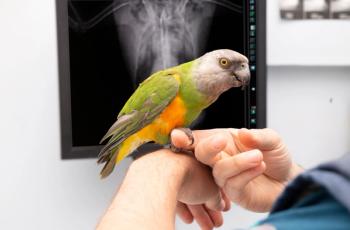
Poaching Causes Staggering Population Losses in Central African Elephants
Poaching caused a near 80% population loss in Central African forest elephants from 2004 to 2014, prompting calls for increased multinational support to prevent the species’ extinction.
Elephant populations are at risk in many places around the world, particularly in Central Africa. At the turn of the 21st century, Gabon, a Central African nation along the Atlantic coast, established Minkébé National Park (MNP) to protect forest elephants. This remotely located national park is Gabon’s largest protected area, shares borders with Cameroon and the Republic of Congo, and is buffered by a no-hunting zone.
Despite having the highest density of Central African forest elephants in the early 2000s, MNP experienced a 78% to 81% drop in forest elephant population from 2004 to 2014, according to a report recently published in Current Biology. This population loss, largely caused by cross-border poaching from Cameroon, “is a considerable setback for the preservation of the species,” the authors wrote.
The authors used two modeling approaches to evaluate forest elephant population loss within MNP and along its periphery. The distance sampling method was used to estimate elephant density along line transects that were placed within selected sampling sites. Using this method, the authors estimated a 78% decline in forest elephant population, from about 33,000 in 2004 to about 7,400 in 2014.
The second approach, the dung-rainfall model, estimated elephant density by measuring dung density. Because rainfall can negatively affect dung density by changing rates of dung decay, the authors developed this model to account for monthly variations in rainfall; without accounting for this variation, a decline in elephant density could be attributed mistakenly to differences in dung decay instead of other factors like poaching. Similar to the distance sampling method, the dung-rainfall model estimated an 81% drop in forest elephant population, from about 35,000 in 2004 to about 6,500 in 2014.
The authors observed a marked drop in dung density along the park’s northern border with Cameroon, indicating intense cross-border poaching. Access to MNP from Cameroon’s national road is relatively easy, putting the park’s forest elephant population at serious risk.
In addition, Cameroon is active in the ivory trade, fueling the elephant poaching industry. The authors noted that “much of the ivory seized on the international market has been traced back to the trinational area of Cameroon, Gabon, and Congo that includes MNP.”
Despite the marked decline in MNP’s forest elephant population over the 10 years spanning 2004 to 2014, Gabon’s national park service remained under-resourced and under-staffed until its government was made aware of the elephant poaching in 2011. Since 2011, Gabon’s government has made important strides, including categorizing forest elephants as “fully protected” and creating the National Park Police.
Because the ivory market is international, the authors mentioned, the efforts of Gabon’s government do not go far enough to prevent poaching of Central African elephants. They suggested several other actions:
- Creating protected areas that spread across several countries
- Coordinating law enforcement activities between countries
- Prosecuting those who either commit or encourage international wildlife crimes
- Listing Central African elephants as “critically endangered” on the International Union for Conservation of Nature’s Red List
Taken together, the report’s findings highlight the need to recognize the plight of Central African elephants and garner international support to prevent their extinction due to poaching.
Dr. JoAnna Pendergrass received her doctorate in veterinary medicine from the Virginia-Maryland College of Veterinary Medicine. Following veterinary school, she completed a postdoctoral fellowship at Emory University’s Yerkes National Primate Research Center. Dr. Pendergrass is the founder and owner of JPen Communications, LLC.
Newsletter
From exam room tips to practice management insights, get trusted veterinary news delivered straight to your inbox—subscribe to dvm360.




